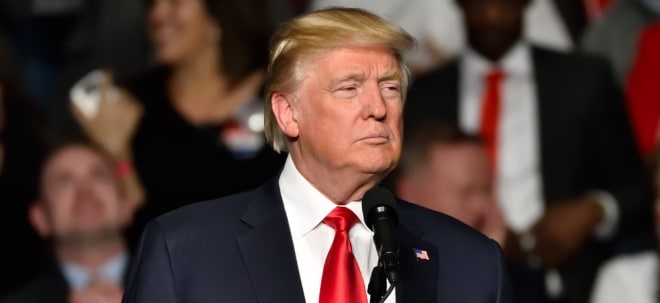Ghaith Abdul-Ahad in Dahiya, Beirut
Saturday July 22, 2006
The Guardian
As we walked through the southern suburb of Beirut known as the Dahiya, a chubby, bearded man in the black uniform and tin helmet of Hizbullah, wearing webbing and carrying an AK-47, shouted at us from behind.
"Yah, Haj, you can't go there," he said. "The MK are flying above. Go round to the other street." The "MK" are what the Lebanese call the unmanned drones Israel has been sending to attack targets in Lebanon over the past week and a half, nicknamed for the initials on their casing.
'We'll make this place a graveyard"
As we walked through the southern suburb of Beirut known as the Dahiya, a chubby, bearded man in the black uniform and tin helmet of Hizbullah, wearing webbing and carrying an AK-47, shouted at us from behind.
"Yah, Haj, you can't go there," he said. "The MK are flying above. Go round to the other street." The "MK" are what the Lebanese call the unmanned drones Israel has been sending to attack targets in Lebanon over the past week and a half, nicknamed for the initials on their casing.
The Dahiya's warren of streets has been fortified in the past 10 days with barricades made from construction sand and rubble. Why do you have all these fortifications, I asked the bearded fighter. Do you expect the Israelis to invade?
"God willing," he said. "I hope so. We have been waiting and preparing for this for such a long time now. The Israelis haven't forgotten their defeat in 2000 [when they withdrew from Lebanon]. We will turn Dahiya into their graveyard."
Driving around this part of Beirut, the only people you see are fighters, some dressed in black military uniforms, some wearing green camouflaged trousers and black T-shirts, most with green webbing loaded with magazines and grenades and AK-47s, some only with radios. They travel mainly on scooters, always in pairs, whizzing through the streets.
But a number of the Hizbullah fighters remaining in Beirut are too young, too old, or too incapacitated from previous clashes with Israel for the battle in south Lebanon. They are reserves, a sort of Hizbullah Dad's Army, left to guard the home front.
Abu Mostafa is one of these. He lives in a flat in a five-storey concrete building 10 minutes from the airport. When I first went to his house, early in the bombing campaign, smoke from the airport's destroyed fuel depots was still drifting through the air, along with the smell of dead animals from a farm that had been hit a day earlier.
Everywhere, people were fleeing the destruction. Nearby an elevated highway had collapsed next to a crater that had filled with water. The whole area smelled of burned plastic and gunpowder.
"I am not leaving my home even if it is flattened with the ground," Abu Mostafa told me then as he sat in the entrance to his building next to his small grocery shop. "I have been displaced so many times, I am not going to leave." Abu Mostafa is a Shia from the south, originally from a small village close to the city of Tyre. He and his family were first displaced after the Israeli invasion of Lebanon in 1978, and then again in the second Israeli invasion in 1982.
As the war wound down he moved with his family to Beirut's southern suburbs, a mesh of illegally built concrete buildings on the edge of the airport inhabited mainly by Shia refugees from the south and which became a Hizbullah stronghold.
Abu Mostafa walks with a limp. One of his legs is shorter than the other because it was hit by a piece of shrapnel. He was injured seven times when he was a Hizbullah fighter during Lebanon's civil war in the 80s.
As I visited him almost every day in the week that followed, the landscape around him was changing quickly. Each day a different building had been reduced to rubble. Soon a huge area, once home to perhaps a half a million inhabitants, was a ghost town.
Between the nervous fighters, suspicious of any stranger who might be an Israeli spotter or a spy, and the sound of the drones and jets in the sky, Abu Mostafa's tours got shorter and shorter. The area of Haret Hreik, where the Hizbullah leadership is supposed to live and from where the group's TV station, al-Manar, is transmitting, was the worst hit. Israeli F-16s and shells fired from warships off the coast razed more than 40 buildings.
"Those sons of dogs are not letting me sleep," Abu Mostafa told me one morning after a heavy night of bombardment. The bombing was getting closer but Abu Mostafa refused to move. "When these events started, my son packed his bag and went down to the south. He is a fighter with Hizbullah. He is very religious and a committed young man.
"He has been training for years now, but even I and his mother don't know what he does when he goes to the training courses, we only see him pack his bags and disappear for a couple of weeks. They are very secretive and this is why they are successful."
The next day as we drove around Abu Mostafa made a phone call. "Yah, Haj, how are you?" he said into the mobile. "No, I am staying in Dahiya ... no I won't leave.
"Listen, Haj, I just wanted to ask about my son. He went to the south a week ago. Any news?" There was a pause, and then he said quietly: "There is no God but Allah."
He rang off and turned to me. "He told me to consider my son a martyr," Abu Mostafa said, his eyes fixed on the middle distance.
"He was very strong," he said.
"For Sayed Hassan [Nasrallah, the Hizbullah leader], nothing is valuable." His voice was dry and his eyes began to flicker.
On Thursday, after eight days of bombardment, the Hizbullah press spokesman gave dozens of journalists a guided tour of the ruins of the Dahiya, telling them about the resilience and strength of the Islamic resistance. Meanwhile, Abu Mostafa, perhaps one of the last inhabitants of the area, was packing his wife and four children and their belongings into a car.
http://www.guardian.co.uk/syria/story/0,,1826505,00.html |


 Thread abonnieren
Thread abonnieren

